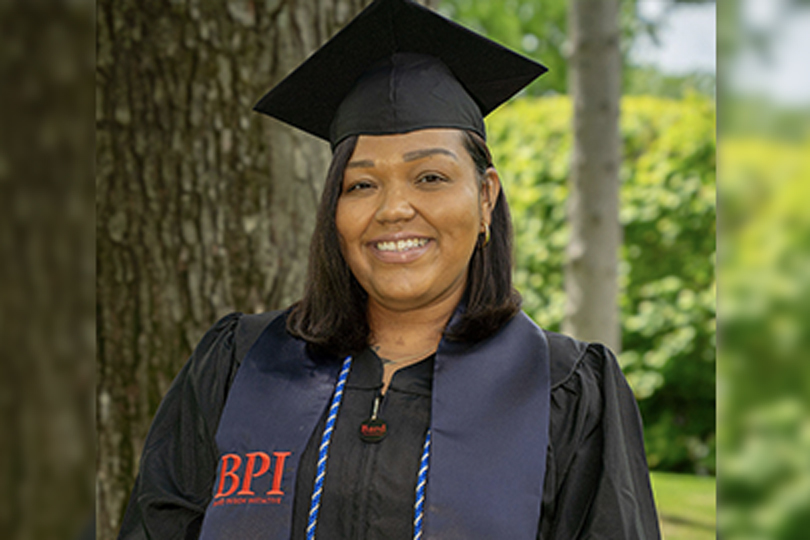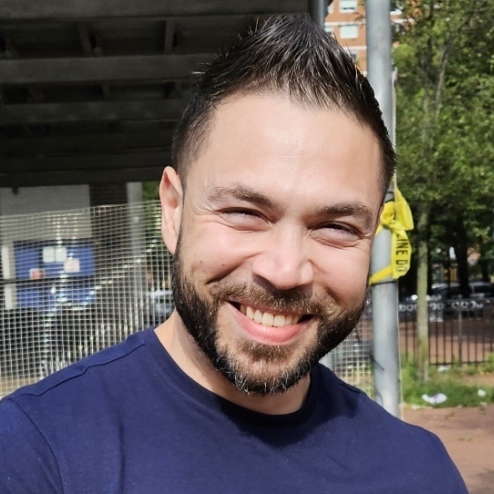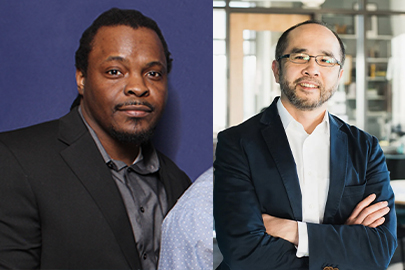BPI alumnus Alelur Duran (’18) authored an essay urging criminal justice movements to push beyond reforms aimed only at non-violent drug offenses arguing “It will be a shame if our country’s criminal justice system continued to treat people with nothing but prison sentences by not taking bold action to end mass incarceration and changing the conditions that lead people to commit harm in the first place.” The full article reproduced below was first published by the Open Society Foundation and can be found here. Duran is a program specialist with the Open Society-U.S. Justice team at the Open Society Foundations.
What a Soccer Star Teaches Us About Criminal Justice
Thousands of people turned out to cheer on the U.S. women’s soccer team last Wednesday. The team’s co-captain, Megan Rapinoe, delivered a rousing speech, praising her teammates, calling for less divisive politics, and demanding equal pay for female athletes. She’s made a major mark in another arena as well—shining a light on the damage the criminal justice system has done to her brother Brian, who has been in and out of prison for most of his life while battling drug addiction.
Brian’s story, which Megan made public in a recent ESPN article, serves as a stark reminder of the profound impact mass incarceration has on so many Americans, with 2.3 million of our brothers and sisters currently in cages. It has become a cancerous tumor on the body politic of the United States.
Research from FWD.us and Cornell University shows that one in two adults (approximately 113 million people) has had an immediate family member incarcerated, with communities of color being affected the most.
Brian personifies the collateral damage of our failed criminal justice policies and the unprecedented rise of incarceration. Some readers would say that Brian brought his troubles upon himself and deserves to have spent most of his life in prison. But if we think about why our country chooses to incarcerate children—Brian was 15 years old when he got arrested for bringing meth to school—instead of getting them health and social services, then maybe it is not surprising that Brian became more vulnerable to illicit drug use and the high levels of violence to which he was exposed.
His incarceration perpetuated a cycle of trauma, drug use, and recidivism. To break this cycle, we have to start treating people with compassion, change the punitive drug laws, and address the social stigmatization of drug users.
But we should not focus on nonviolent, low-level drug users alone. We should extend compassion to those serving long-term prison sentences for serious and violent crimes as well.
As reported in the ESPN piece, Brian committed numerous acts of violence and joined a white supremacist gang in prison for survival. He was not imprisoned for a violent crime, but as a criminogenic environment, prisons tend to engender violent behavior. In order to make a huge dent in mass incarceration, we will have to confront the issue of violence and implement measures of accountability that do not rely on imprisonment—and particularly excessive sentences—for violent crimes.
Ninety-five percent of incarcerated people in America will eventually be released, and it behooves us not to treat them as beyond redemption. Studies have shown that people age out of crime; the older one gets, the lower one’s risk of recidivism becomes.
Research also shows that locking people up for lengthy periods does little to improve public safety. If prisons really served as a tool for safety, our country would be the safest country in the world because we incarcerate more of our citizens than any other nation.
In the last decade, mass incarceration has attracted the public’s attention, and we have begun to question its effectiveness. Criminal justice is one of the few issues that has garnered support for reform from folks on both sides of the political aisle at a time when America seems hopelessly polarized.
However, when it comes to reforming the laws that impose extreme sentences on people who commit violence, we have less appetite for that conversation. But if we were to ask survivors of violent crime what they want to see the criminal justice system achieve, it would not be what prisons continue to produce: more violent behavior and no healing mechanism for victims.
In a first-of-its-kind survey conducted by the Alliance for Safety and Justice in 2016, a majority of crime victims favored rehabilitation, mental health and drug treatment, and community supervision over prisons. Our criminal justice system fails to address the needs of crime survivors and increases the chances of a person committing another crime.
Common Justice, a nonprofit organization based in Brooklyn, has shown that we can hold people accountable without relying on incarceration while helping crime survivors heal from their trauma. Through a partnership with the Brooklyn District Attorney’s office, Common Justice offers an alternative to incarceration using a restorative justice approach, which facilitates healing for survivors of violence and helps those who commit violence to accept responsibility and make meaningful amends.
“Decades of research about the individual level causes of violence … has demonstrated four key drivers: shame, isolation, exposure to violence, and a diminished ability to meet one’s economic needs,” says Danielle Sered, executive director of Common Justice and author of a new book, Until We Reckon: Violence, Mass Incarceration and a Road to Repair. Prisons inherently epitomize these four key drivers. Had Brian been diverted to a social service agency at 15, chances are he would not become a violent person and turned to gangs while in juvenile detention.
In the ESPN article, Megan says that “it would be such a shame if [Brian] left this world with nothing but prison sentences behind him.” It will be a shame if our country’s criminal justice system continued to treat people with nothing but prison sentences by not taking bold action to end mass incarceration and changing the conditions that lead people to commit harm in the first place.
Alelur Duran is a program specialist with the Open Society-U.S. Justice team at the Open Society Foundations.



